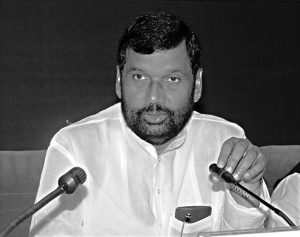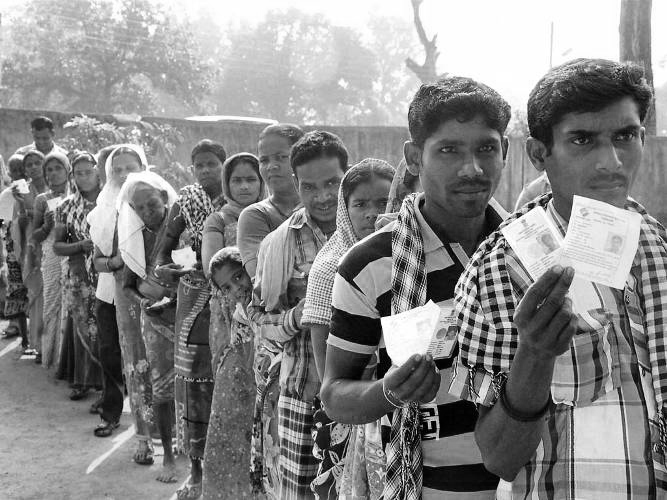The poll battle has begun. The great Indian people will vote to elect the sixteenth Lok Sabha soon. Every election is different. But this election – as suggested by forecasts – will be remembered long for its outcome. It may prove a point of departure for India’s future politics. In other words, this election may prove historic for more than one reason.
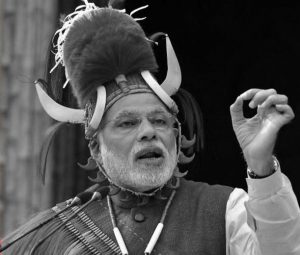 As the word ‘matdaan’ – the popular Hindi equivalent for ‘voting’ – suggests, we ‘donate’ our vote; we do not use it as a weapon or an instrument. We do not use it to build something; we do not use it as an aid in our struggle. Probably, it is so because our society and our democracy are still in the Middle Ages or in an even older era, as far as our mindset and thinking are concerned.
As the word ‘matdaan’ – the popular Hindi equivalent for ‘voting’ – suggests, we ‘donate’ our vote; we do not use it as a weapon or an instrument. We do not use it to build something; we do not use it as an aid in our struggle. Probably, it is so because our society and our democracy are still in the Middle Ages or in an even older era, as far as our mindset and thinking are concerned.
I would like to request the people of India to use their vote as a weapon and as an instrument. I would direct my request especially at the exploited and repressed communities of the country, whom Buddha described as Bahujan and Phule as Balijan. And that is because it is these communities which need good governance the most. All the governments and the system have only exploited them. Though the entire structure of democratic polity and economic development rests on their shoulders, unfortunately they have not been able to become a part of the system. They continue to be outsiders.
Friends, for the last more than two decades, I have examined the workings of political parties at close quarters and as an insider – not only at the ideological and intellectual level but also at the practical level. All things considered, I can only say that the Bahujans need to think – and deeply at that – afresh about the entire situation. The bitter truth is that the labourers, farmers and artisans of the country, who are mostly Dalits, OBCs and Tribals, have been relegated to the margins of politics. At least, they are no longer in the national political agenda. Their leaders have ditched them, deceived them and these leaders are worse than the class enemies of these communities. There is no scope for long-winding arguments and detailed analysis here. So, I would like to straight away jump to drawing your attention to the prevailing political situation in the country.
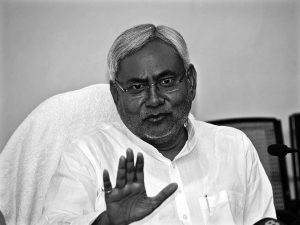 The current situation
The current situation
The UPA government, which has been ruling the country for the last ten years, its head Manmohan Singh and his Congress party have admitted defeat even before the votes are counted or even cast. Their words and actions suggest this. On the other hand, the BJP and its leader Narendra Modi are turning aggressive by the day. The media and the pre-poll surveys have pushed them much ahead of everyone else and Modi’s tone and tenor is already that of a ruler. Some state-level parties and what is left of the leftist parties are making a half-hearted attempt to cobble up a Third Front. Like a premature baby, it is battling for life in the political incubator. I don’t think the Indian electorate is taking this front seriously. It is like an all-India club of leaders confined to their own states. In the 1940s, the princely states had formed a similar organization. The Third Front is based more on negativities than on positive issues. One section of it, which describes itself as ‘left’ (of which Mulayam Singh considers himself a part), is opposed to the BJP but it disagrees with only some policies of the Congress. The second section, which includes leaders like Sharad Yadav and Nitish Kumar, is not against the BJP but is against Modi. This section also differs with the Congress only partially. In totality, the Third Front is less anti-BJP and more anti-Modi – and this is the basis of its unity. Now you can yourself guess the seriousness of a political conglomerate, the basis of which is hatred of an individual.
Opposition to the BJP and Narendra Modi is also the central element of the Congress world-view. Otherwise, there is hardly any difference between the socio-economic policies of the BJP and those of the Congress and its allies. Secularism is only a mask behind which these parties have hidden their ghastly faces. Just imagine, what would the ideology of the Third Front or the UPA be if, instead of 15 crore, the population of Muslims in the country were as that of Christians or Sikhs. Mohammed Ali Jinnah was not wrong when he said that India will continue to be secular because of the substantial population of Muslims in the country. That is why he wanted Pakistan to have a sizeable Hindu population, so that the nation’s secular political structure would be retained. The only problem is that, if Jinnah had such a fine understanding of the situation, why did he harp on Pakistan? If Muslims of divided India can create problems for communal leaders like Modi, the Muslims of undivided India would have driven the likes of Modi out of politics. Had India not been divided, the politicians would have been forced to rise above communalism.
But today, the influence of Narendra Modi is rising. In contrast, the Congress and others opposed to him are getting weaker and weaker. A discourse on the reasons that have led to this situation would only serve to shame the so-called secular forces. They won’t know where to hide themselves.
Roots of crisis of secularism
Right from the time of Independence, Muslims, with such a huge population, were described as a “minority” and a feeling of insecurity was deliberately etched on their psyche. Under a conspiracy, they were not allowed to venture beyond religious education and rituals. This was done in the name of preserving their distinct cultural identity. The elite ‘Ashraf’ Muslims ensured that while their own kids went to public schools, the children of backward ‘Pasmanda’ Muslims were left at the mercy of madrasas – just as children of Hindu Dalits and OBCs were herded into much worse government schools. Why was this done? So that the common OBC Muslims continue to languish in the Middle Ages and the Ashraf Muslims continue to dominate them. The secular forces of the country handled this mission with exceptional success.
So, my request to the Bahujan community would be to develop a Bahujan text of secularism – just as Kabir and Phule did – to counter the brahmanical or elitist text. The secularism of the Congress and the so-called Third Front is not only regressive but also dangerous. The Bahujan forces should firmly reject it.
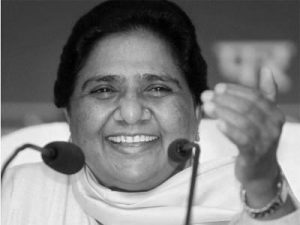 Modi: What kind of OBC?
Modi: What kind of OBC?
But what do we do with Modi? About two years ago, I had predicted that the BJP may play the OBC card. I had also predicted that if it does so, the BJP will succeed beyond its wildest imagination. At that time, my friends had ridiculed the idea. Today, the situation is for everybody to see. The BJP President Rajnath Singh is shouting from the rooftops that his party’s PM candidate is an OBC and a ‘chaiwallah’. Not long back, Narendra Modi proudly described himself as a “Hindu”, today, he is flaunting his OBC credentials. Just ask Rajnath Singh what Narendra Modi was doing in the days of the Mandal Commission? What were the BJP and Modi doing when we were facing lathis and bullets? At that time, he was paving the way for Advani’s Somnath Yatra; he was performing Advani’s ‘aarti’ and declaring himself to be a staunch Hindu. And remember, the yatra was implicitly – if not explicitly – against us. Today, how has he managed to metamorphose into an OBC from a Hindu? Many people ask me what the secret of Modi’s growing stature and influence is. One need not be a rocket scientist to realize that what distinguishes Modi from Advani, Rajnath, Murli Manohar Joshi, Sushma Swaraj, Arun Jaitley and other BJP leaders is his OBC status. And this is his real and only strength.
But, this is his biggest hypocrisy too. Manu was not a Brahmin but he drew up the brahmanical code. When Brahmins find that power is slipping out of their hands, they patronize forces that can protect their interests. Kshatriya Manu had done that in an age gone by and a Shudra – officially an OBC – Modi is doing this job now. He will not pen the Bahujan script of Indian politics; he will author its brahamanical rendition. This script has been prepared in Nagpur – not at Ambedkar’s Dikshabhoomi but at the RSS headquarters. Ramvilas Paswan, Athavale, Ramkripal Yadav, Udit Raj and other such puppets will dance to their tunes. Other OBC leaders will also stage their separate stunts, and overwhelmed by their dance and their stunts, you will fall head over heels into this well-laid trap.
You will happily put your vote into the kitty of the brahmanical charlatan, who is going from place to place, dressed like a magician, wearing his OBC identity on his sleeve. This time, his Bahujan community, not Baliraja, will become victims of the well-crafted brahmanical snare.
Modi’s rise can only be compared with that of Hitler. He too had climbed to power using the ladder of democratic process. He had also flaunted his poverty and his shoemaker background. Laloo Prasad used to market himself by claiming that his mother used to sell curd. Now, Modi is going to town with his chaiwallah background.
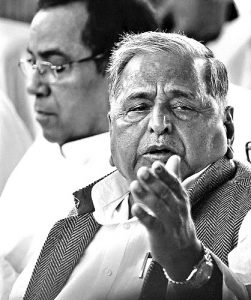 But, when Hitler came to power, he did not embrace the ideal of equity; he followed the tenets of Nazism which were based on social dominance – not social justice. Brahmanism is the Indian version of Hitler’s social dominance. Now, a Shudra Modi is out to thrust upon the entire country his Gujarati version of social dominance. And the politics of development allows this.
But, when Hitler came to power, he did not embrace the ideal of equity; he followed the tenets of Nazism which were based on social dominance – not social justice. Brahmanism is the Indian version of Hitler’s social dominance. Now, a Shudra Modi is out to thrust upon the entire country his Gujarati version of social dominance. And the politics of development allows this.
Dear Bahujan voter
So, my dear Bahujan comrades, what will you do? I can understand your pain. You want to say that the Mulayams, Laloos, Mayawatis and Nitish Kumars have already ruined you. You are right to a tee. You believed that they all represented secular forces. However, the truth is that they are irreligious and vile forces. Remember, secularism and irreligiosity are not the same. Those who are neck-deep into the morass of lies, frauds, scams and nepotism can never be the heroes of the Bahujans. Their ideological moorings are not in Phule-Ambedkarism. They are driven by the ideology of Gandhi and Savarkar and even more so by self-interest. They are brahmanical wolves in Bahujan sheep’s clothing, and extremely immoral at that. It is because of their antics that the strength of the BJP is growing by leaps and bounds. Whatever their past, their present is so murky that even Narendra Modi seems cleaner in comparison. It is also true that once Narendra Modi holds the reins of power, it will be the end of the road for the good-for-nothing OBC-Dalit leaders displaying the banner of social justice and secularism. Their end will be heart-rending. Most of them will take their last breath in the dungeons of jails.
Then, what should we do? My request would be that you should study the political scenario deeply. In no case should you give your vote to the corrupt, the immoral and the debauch. Vote you must, but use your vote in a manner that preserves and protects the democratic polity of the country and keeps open scope for discourse, debate and dissent.
Published in the April 2014 issue of the Forward Press magazine
Forward Press also publishes books on Bahujan issues. Forward Press Books sheds light on the widespread problems as well as the finer aspects of the Bahujan (Dalit, OBC, Adivasi, Nomadic, Pasmanda) community’s literature, culture, society and culture. Contact us for a list of FP Books’ titles and to order. Mobile: +919968527911, Email: info@forwardmagazine.in
